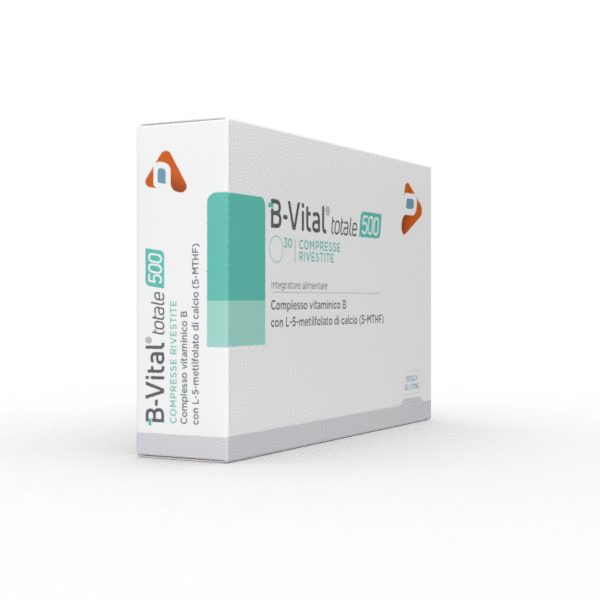The B group vitamins support important functions of the body such as energy metabolism, blood cell production, red blood cell formation, homocysteine metabolism, as well as the functioning of the immune and nervous systems. In particular, low levels of Vitamin B12 and folic acid – cause of symptoms such as pallor, asthenia, and tiredness even at rest – may be responsible for anemia, in the same way as reduced absorption of iron at duodenal level, where celiac disease concentrates its harmful effects. The lack of B vitamins, especially B12 and folic acid, occurs most frequently in people with celiac disease, contributing among other things to raising homocysteine levels, a metabolite that when present in abundance increases the risk of developing cardiovascular diseases. This is what is shown by a study published by the World Journal of Gastroenterology, in which it was possible to observe how the intake of vitamins B – B6, B12, and folic acid – entails the consequent reduction of homocysteine values in the blood, revealing itself particularly useful for individuals celiacs.
What is a celiac disease?
Characterized by a very variable clinical picture ranging from profuse diarrhea with marked weight loss to extraintestinal symptoms and association with other autoimmune diseases, celiac disease is a chronic inflammation of the small intestine triggered by the ingestion of gluten – a protein fraction of some cereals such as wheat, rye, barley and oats – in genetically predisposed subjects. The damage caused to the intestinal mucosa by celiac disease, with the progressive atrophy of the villi, is responsible for the malabsorption of one or more nutrients. Among these, the B vitamins, in particular, folic acid and Vitamin B12, are the most frequent deficits in celiac people.
When can integration be useful?
The intake of Vitamin B12 through proper nutrition is generally sufficient to ensure adequate blood levels of this nutrient, which is found in foods of animal origin such as fish, meat, eggs, and dairy products. Even in celiac patients, therefore, in the presence of a correct diet where gluten is systematically excluded, the absorption of group B vitamins occurs through nutrition. In the case in which, instead, the diagnosis is late or in the first period following the diagnosis of celiac disease, the malabsorption proves to be against the introduction of this vitamin group in the body. It is therefore important to regularly check the blood values of Vitamin B12, iron and folate and eventually resort, under medical supervision, to a prompt integration.
Polyvitamin formulations are readily available on the market which supplies the B group vitamins in balanced doses.


